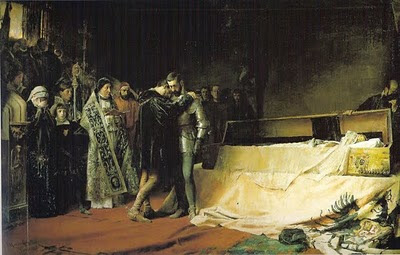 |
| Fr. Benedict J. Groeschel, CFR |
People with semi-Pelagian attitudes -- the partial or general denial of the effects of Original Sin -- love to talk endlessly about the Myers-Briggs, because it doesn't tell much about one's negative traits. Most of the instruments used for evaluation of religious candidates -- if not all of them -- are constructed with the assumption that we all have negative elements in our personality functioning. The goal of the test is to see if we fit into the normal range and do not have symptoms of serious pathology like schizophrenia or paranoia.Since I've been reading the great psychologist St. Augustine all of my life, you don't have to convince me that we all are a bit of a mess as a result of the effects of Original Sin -- that mysterious and universal ailment. The Pelagian assumption that we are all actually sane people exempt from the effects of Original Sin gives rise to the observation of many older religious that they never would have been admitted today if they had to take a psychological test. I assure them that I never tested a totally well-balanced and integrated person yet. If I did I would never let him enter the Franciscans, for fear that he would die of loneliness. I'd send him to the Jesuits, not that they're all in much better shape than the friars, but one perfectly sane fellow might help their national health index.
Link (here) to read the full interview of Fr. Benedict Groeschel, CFR at Inside Catholic










































